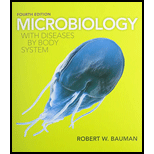
Concept explainers
1.
To answer:
The different hypersensitive reactions.
Concept introduction:
Hypersensitivity is the body’s defense mechanism to an allergen, autoimmunity, and venom. The allergen can be of pollen, mold, and chemicals. Poison ivy and bee-stings inject venom into the body. There are totally four types of hypersensitivity depending on the state of the allergen.
2.
Concept introduction:
Hypersensitivity is the body’s defense mechanism to an allergen, autoimmunity, and venom. The allergen can be of pollen, mold, and chemicals. Poison ivy and bee-stings inject venom into the body. There are totally four types of hypersensitivity depending on the state of the allergen.
3.
Concept introduction:
Hypersensitivity is the body’s defense mechanism to an allergen, autoimmunity, and venom. The allergen can be of pollen, mold, and chemicals. Poison ivy and bee-stings inject venom into the body. There are totally four types of hypersensitivity, depending on the state of the allergen.
4.
Concept introduction:
Hypersensitivity is the body’s defense mechanism to an allergen, autoimmunity, and venom. The allergen can be of pollen, mold, and chemicals. Poison ivy and bee-stings inject venom into the body. There are totally four types of hypersensitivity, depending on the state of the allergen.
Want to see the full answer?
Check out a sample textbook solution
Chapter 18 Solutions
Microbiology with Diseases by Body System & Modified MasteringMicrobiology with Pearson eText -- ValuePack Access Card -- for Microbiology with Diseases by Body System Package
- You intend to insert patched dominant negative DNA into the left half of the neural tube of a chick. 1) Which side of the neural tube would you put the positive electrode to ensure that the DNA ends up on the left side? 2) What would be the internal (within the embryo) control for this experiment? 3) How can you be sure that the electroporation method itself is not impacting the embryo? 4) What would you do to ensure that the electroporation is working? How can you tell?arrow_forwardDescribe a method to document the diffusion path and gradient of Sonic Hedgehog through the chicken embryo. If modifying the protein, what is one thing you have to consider in regards to maintaining the protein’s function?arrow_forwardThe following table is from Kumar et. al. Highly Selective Dopamine D3 Receptor (DR) Antagonists and Partial Agonists Based on Eticlopride and the D3R Crystal Structure: New Leads for Opioid Dependence Treatment. J. Med Chem 2016.arrow_forward
- The following figure is from Caterina et al. The capsaicin receptor: a heat activated ion channel in the pain pathway. Nature, 1997. Black boxes indicate capsaicin, white circles indicate resinferatoxin. You are a chef in a fancy new science-themed restaurant. You have a recipe that calls for 1 teaspoon of resinferatoxin, but you feel uncomfortable serving foods with "toxins" in them. How much capsaicin could you substitute instead?arrow_forwardWhat protein is necessary for packaging acetylcholine into synaptic vesicles?arrow_forward1. Match each vocabulary term to its best descriptor A. affinity B. efficacy C. inert D. mimic E. how drugs move through body F. how drugs bind Kd Bmax Agonist Antagonist Pharmacokinetics Pharmacodynamicsarrow_forward
- 50 mg dose of a drug is given orally to a patient. The bioavailability of the drug is 0.2. What is the volume of distribution of the drug if the plasma concentration is 1 mg/L? Be sure to provide units.arrow_forwardDetermine Kd and Bmax from the following Scatchard plot. Make sure to include units.arrow_forwardChoose a catecholamine neurotransmitter and describe/draw the components of the synapse important for its signaling including synthesis, packaging into vesicles, receptors, transporters/degradative enzymes. Describe 2 drugs that can act on this system.arrow_forward
- The following figure is from Caterina et al. The capsaicin receptor: a heat activated ion channel in the pain pathway. Nature, 1997. Black boxes indicate capsaicin, white circles indicate resinferatoxin. a) Which has a higher potency? b) Which is has a higher efficacy? c) What is the approximate Kd of capsaicin in uM? (you can round to the nearest power of 10)arrow_forwardWhat is the rate-limiting-step for serotonin synthesis?arrow_forwardWhat enzyme is necessary for synthesis of all of the monoamines?arrow_forward
- Essentials of Pharmacology for Health ProfessionsNursingISBN:9781305441620Author:WOODROWPublisher:Cengage





